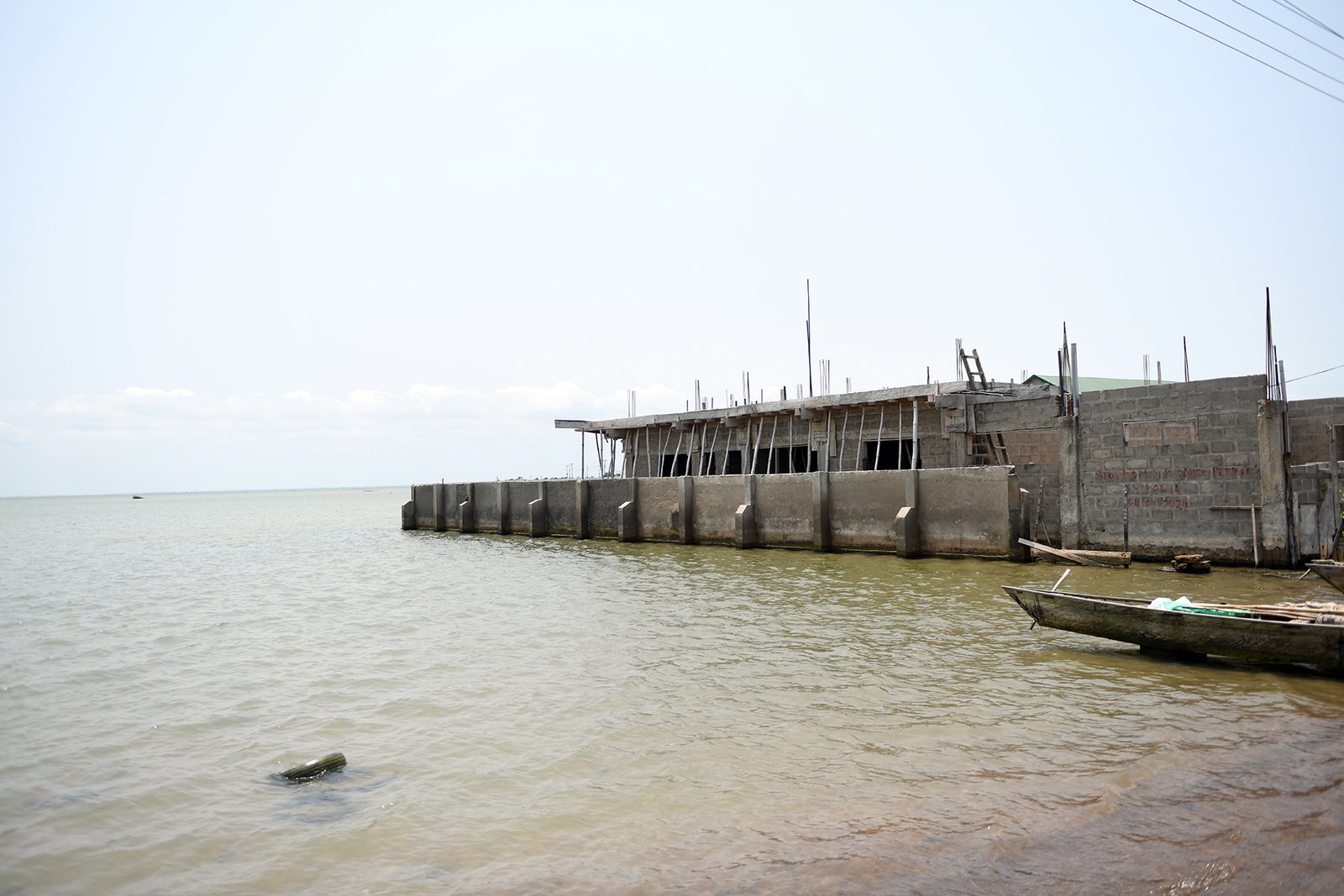News
Bill to remove 15% sanitary pad tax introduced

A private member’s bill proposing an amendment to remove the 15 per cent Value Added Tax (VAT) on menstrual hygiene products has been introduced to Parliament.
The proposed bill seeks to amend the VAT (Amendment) Act, 2022 (Act 1082) to remove the VAT on sanitary pads and tampons.
It will also push for the reclassification of the 20 per cent import tax on final consumer goods to zero-rated essential social goods and proscribe future taxation of such essential social goods.
The National Democratic Congress (NDC) Member of Parliament (MP) for Madina, Francis-Xavier Sosu, presented the proposed bill to the Clerk to Parliament last Thursday.
Justification
Providing the justification for introducing the bill in a memorandum accompanying the bill, the human rights lawyer said globally many women and girls faced challenges in managing their menstruation.
Mr Sosu explained that menstrual hygiene management (MHM) was defined as the practice of using clean materials to absorb menstrual blood that can be changed privately, safely, hygienically and as often as needed for the duration of the menstrual cycle.
In his view, often, the failure to address the menstrual hygiene needs of women and girls could have far-reaching consequences for basic hygiene, sanitation and reproductive health, ultimately affecting the country’s progress towards the Sustainable Development Goals one, three, four, five, six and 10.
Goal one covers no poverty, three on good health and wellbeing; four on quality education; five on gender equality, six on clean water and sanitation, and 10 on reduced inequalities.
“Despite the fact that about a quarter of the world’s population menstruates, 500 million people have been left without access to menstrual hygiene products, leading to period poverty”.
“Period poverty, thus refers to the struggle to afford menstrual products, and the increased economic vulnerability menstruating people face due to the financial burden posed by menstrual supplies,” the MP, who is also one of the legislators who sponsored the Criminal Offences (Amendment) Bill, 2022 which was passed to scrap the death penalty and criminalised accusation of anyone as witchcraft.
Discriminatory tax
Quoting authoritative sources globally, Mr Sosu said inadequate knowledge of menstrual issues among schoolgirls, unsuitable water, sanitation and hygiene (WASH) facilities; limited access to sanitary kits and cultural barriers were some of the major factors hindering proper menstrual management among schoolgirls in low-and middle-income nations.
He added that globally, women were twice as likely as men to report any discrimination they suffered based on their sex.
With women making up the majority of Ghana’s population — 15.6 million representing 50.7 per cent of the population per the 2021 Population and Housing Census, and 85 per cent of women reported to be using sanitary pads as their main MHM material, he said the imposition of taxes on sanitation did not serve their interest.
“Imposing taxes on sanitation pads which is as a result of their menstrual cycle which is a natural phenomenon is unfair, discriminatory and violates both national law (Article 17 of the 1992 Constitution) and various international laws and treaties such as Article 2 of the African Charter on Human and Peoples’ Rights, Articles 24(1) and 26 of the International Covenant on Civil and Political Rights (ICCPR), the Convention on Rights of Children, and the Convention on the Elimination of All forms of Discrimination against Women, among others,” Mr Sosu said.
It is possible to remove tax
The MP cited how some countries had taken the lead and shown that it was possible to take the tax off menstrual products.
Mr Sosu said in 2020, Scotland became the first country in the world to offer free sanitary products to all women.
Also, Kenya became the first country in the world to remove the tax on imports of sanitary products in 2004, the Madina MP pointed out.
He also mentioned Canada, Australia, India, Jamaica, Nicaragua, Nigeria, Lebanon, Malaysia, Colombia, South Africa, Namibia and Rwanda as other countries that had all put in measures to remove taxes on “period products”.
Unconscionable tax
On June 23, this year, the Speaker of Parliament, Alban Sumana Kingsford Bagbin, expressed strong abhorrence at the imposition of taxes on sanitary pads in Ghana.
He described the passage of laws by Parliament to impose the tax on sanitary pads as “unconscionable and a cardinal sin.”
“This House should not have allowed it at all.
You know the impact of that law on human resource development and the development of this country is immeasurable.
“Why should we pass a law imposing tax on sanitary pads?
We have to take immediate action to prevent whoever is the minister and is proposing it to take it off,” Mr Bagbin said.
The Speaker expressed those sentiments to members of the House when he informed the House of a petition he had received from civil society groups and non-profit organisations that called themselves the Socialist Movement of Ghana who had picketed the premises of Parliament on June 23, 2023.
The group members, clad in red attire and armbands, carried placards emphasising the need to suspend taxes on sanitary pads.
Some of the placards read: “You cannot tax my period”, “We are already bleeding. Don’t tax our period”, “Don’t consider sanitary pads as luxury products,” and “It is unfair and discriminatory to tax bleeding young girls.”
Goal one covers no poverty, three on good health and wellbeing; four on quality education; five on gender equality, six on clean water and sanitation, and 10 on reduced inequalities.
“Despite the fact that about a quarter of the world’s population menstruates, 500 million people have been left without access to menstrual hygiene products, leading to period poverty”.
“Period poverty, thus refers to the struggle to afford menstrual products, and the increased economic vulnerability menstruating people face due to the financial burden posed by menstrual supplies,” the MP, who is also one of the legislators who sponsored the Criminal Offences (Amendment) Bill, 2022 which was passed to scrap the death penalty and criminalised accusation of anyone as witchcraft.
Discriminatory tax
Quoting authoritative sources globally, Mr Sosu said inadequate knowledge of menstrual issues among schoolgirls, unsuitable water, sanitation and hygiene (WASH) facilities; limited access to sanitary kits and cultural barriers were some of the major factors hindering proper menstrual management among schoolgirls in low-and middle-income nations.
He added that globally, women were twice as likely as men to report any discrimination they suffered based on their sex.
With women making up the majority of Ghana’s population — 15.6 million representing 50.7 per cent of the population per the 2021 Population and Housing Census, and 85 per cent of women reported to be using sanitary pads as their main MHM material, he said the imposition of taxes on sanitation did not serve their interest.
“Imposing taxes on sanitation pads which is as a result of their menstrual cycle which is a natural phenomenon is unfair, discriminatory and violates both national law (Article 17 of the 1992 Constitution) and various international laws and treaties such as Article 2 of the African Charter on Human and Peoples’ Rights, Articles 24(1) and 26 of the International Covenant on Civil and Political Rights (ICCPR), the Convention on Rights of Children, and the Convention on the Elimination of All forms of Discrimination against Women, among others,” Mr Sosu said.
It is possible to remove tax
The MP cited how some countries had taken the lead and shown that it was possible to take the tax off menstrual products.
Mr Sosu said in 2020, Scotland became the first country in the world to offer free sanitary products to all women.
Also, Kenya became the first country in the world to remove the tax on imports of sanitary products in 2004, the Madina MP pointed out.
He also mentioned Canada, Australia, India, Jamaica, Nicaragua, Nigeria, Lebanon, Malaysia, Colombia, South Africa, Namibia and Rwanda as other countries that had all put in measures to remove taxes on “period products”.
Unconscionable tax
On June 23, this year, the Speaker of Parliament, Alban Sumana Kingsford Bagbin, expressed strong abhorrence at the imposition of taxes on sanitary pads in Ghana.
He described the passage of laws by Parliament to impose the tax on sanitary pads as “unconscionable and a cardinal sin.”
“This House should not have allowed it at all.
You know the impact of that law on human resource development and the development of this country is immeasurable.
“Why should we pass a law imposing tax on sanitary pads?
We have to take immediate action to prevent whoever is the minister and is proposing it to take it off,” Mr Bagbin said.
The Speaker expressed those sentiments to members of the House when he informed the House of a petition he had received from civil society groups and non-profit organisations that called themselves the Socialist Movement of Ghana who had picketed the premises of Parliament on June 23, 2023.
The group members, clad in red attire and armbands, carried placards emphasising the need to suspend taxes on sanitary pads.
Some of the placards read: “You cannot tax my period”, “We are already bleeding. Don’t tax our period”, “Don’t consider sanitary pads as luxury products,” and “It is unfair and discriminatory to tax bleeding young girls.”
Credit: Graphic.com.gh
News
Swallowed by the Sea! …Keta’s coastal lines, landmarks, efforts to preserve heritage

The Atlantic Ocean is no longer a distant blue horizon for the people of Keta.
It now circles around their doorsteps, uninvited, unrelenting, pulling down walls and other structures, erasing memories, and threatening lives.
Hovering precariously between the restless sea and the Keta Lagoon, this once-thriving coastal town is slowly being obliterated.




Salt water has become both a physical and metaphorical threat, dissolving the town’s past as fast as it claims its future.
Madam Aku Atitso, 62, lives in a crumbling former Prisons Service quarters – one of the few structures still standing on the eroded stretch of Queen Street.


She sits quietly at the entrance, preparing a modest breakfast for herself and her granddaughter.
The air is thick with salt and silence. “The sea took everything,” she says softly. “My husband’s nets, our mattress, our memories all gone overnight.” Her voice trembles. “This place too is dying. But it’s the last place with a roof over my head.”
A few metres away, Aunty Esinam, 79, watches the sea from a low stool beside a wooden shelter. Her eyes do not blink. “That spot,” she points, “used to be someone’s living room, a whole family lived there”.

It’s not just homes that are vanishing. Landmarks that anchored Keta’s cultural identity are disappearing one after another. The once-imposing Fort Prinzenstein, a haunting relic of the transatlantic slave trade is now more of a ruin than a monument.

the encroaching waters along Keta’s
coast.
encroaching waters along Keta’s coast
The colonial-era Bremen factory, the old cinema where generations of children once laughed at flickering black-and-white films is also gone.
Queen Street, once the town’s bustling backbone, is now a watery corridor choked with debris.
Standing atop a section of the sea defence wall, 69-year-old retired teacher Efo Kwasi Agbeko surveys what remains.
“The first police station is mostly gone,” he says, gesturing part of the building stuck in the sea sand, only ruins and a few rooms remain.

“This town is fighting, but the sea is winning,” he said.
Even the Cape St. Paul Lighthouse, Keta’s historic sentinel, leans perilously toward the water, and fishermen say holes in the shore are opening more frequently, sometimes every week.
That leaves a thick cloud of uncertainty hanging around the historic town of Keta.
Once upon a time, it was a vibrant town noted for business but currently left with ruins with a few of the residents watching in awe the sea’s devastation.
From: Geoffrey Kwame Buta, Keta, Volta Region
News
Ghanaians climax Easter with fun-filled activities

Christians around the world and other faith based groups last Monday climaxed the Easter celebration with a number of fun-filled outdoor and indoor activities.
With streets empty, fun seekers stormed church premises where picnics were held while others partied in many ways.
Others spent the day at the various beaches and music and film shows occupying the others.

velleyball competition

at the Laboma Beach
Church in Tema Community 8 engaged
in a number of activities including the
popular draught competition
At the churches, participants engaged in bible reading, football, volleyball, playing cards, table tennis, horse racing, bouncing castles, swimming and oware.



one of the picnic venues
Others played ludo, tag of war, lime and spoon, draught, music competitions among others.
The Spectator captured some of the exciting scenes around Accra-Tema for the benefit of readers.
Story & pictures by Victor A. Buxton







